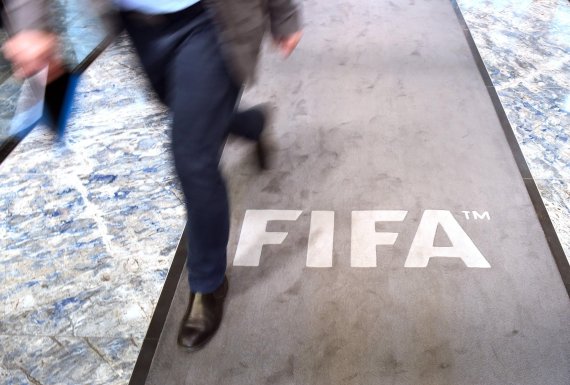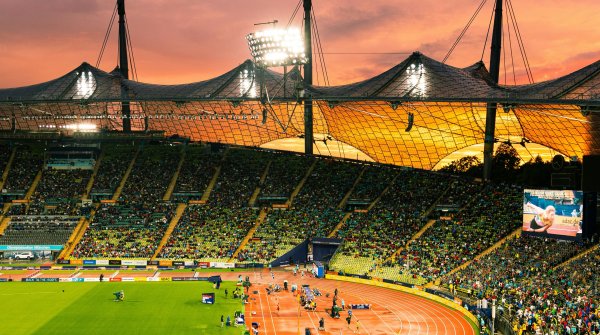
With large associations, the uncompromising soccer business is all about rights and marketing. But there are also other criteria required for the job. Applicants here need top qualifications in as many areas as possible. This is because the business is becoming more and more complex, and at the same time needs to gain new trust.
Have you been wanting to work in the sports business for a while now? To the ISPO JOB MARKET! >>>
Here, our practical experts Andy Gugenheimer (head of sportyjob.com as well as cooperation partner of the ISPO JOB MARKET) and personnel consultant Gunther Schnatmann explain what requirements will get the doors of the German Football Association (DFB), the Union of European Football Associations (UEFA), and the global Fédération Internationale de Football Association (FIFA) open faster.
1. Association work is legal work
Those who deal with soccer will be familiar with the sometimes bizarre excesses in terms of rights. The games may be shown on TV, but not on the broadcaster’s online stream.
Collaborations, marketing measures, and media partnerships at the DFB, UEFA, and FIFA are thought up by specialists who have all kinds of jobs, from marketing manager to TV expert. However, they must constantly coordinate these measures with the lawyers, and keep the legal framework conditions in the back of their minds.
One example requirement, according to an ad for the position of director for various “smaller” world championships (from U17 to Beach Soccer) with FIFA in Zurich: “Cooperation with the FIFA legal department in all legal matters.” Required at the UEFA: “Ensuring that the core athletic values always take precedence over commercial interests.”

Expert Andy Gugenheimer: “So, here they’re looking for candidates who can master the balancing act between fundamental association tasks, the legal framework conditions, and the pursuit of the greatest economic success possible.”
It’s best to have already cooperated with attorneys in a legally complicated environment – say, in politics or in smaller associations.
2. It won’t work without brand awareness
What’s fundamentally required of future job holders in nearly every FIFA job ad: “Increasing the brand values of FIFA products and events.”
Thus, all activities in the associations need to pay into their brand. This is important for positioning the associations in turn as strong partners for sponsors. It’s the FIFA World Cup, the UEFA EURO, and the DFB trophy where the international brand manufacturers from the sports and consumer goods industries get involved, and pay high figures to do so.
The recognizability of the associations through corporate design (CD) thus plays a very important role in all job areas. And because FIFA, the UEFA, and the DFB aren’t as emotionally loaded or as talked about in daily life as Adidas, Puma, Nike, Coca-Cola, or Red Bull, these associations need to uphold their brands at every opportunity – especially when it comes to the major tournaments with audience appeal.
“Applicants with experience with brand manufacturers thus have a significant advantage. Everybody else needs to be aware that all activities also need to pay into the association’s brand,” knows staffing expert Gunther Schnatmann.
3. The more languages the better
The UEFA and FIFA are internationally aligned, both headquartered in the trilingual Switzerland. That is why top English language skills alone usually aren’t enough for the these two associations. At FIFA, the “official languages” besides English are French, Spanish, and German. You’ll need mastery of at least two of these (in addition to your native language).
Even at the level of a personal assistant, fluent skills in English and French are desired at the UEFA. By contrast, a vocational education (apprenticeship) is sufficient in terms of the professional qualifications for this position. The two international associations also emphasize in their ads that future employees should already have work experience – an internship at the minimum – in international assignments.
“Nothing works without internationality and languages here,” explains recruiter Gugenheimer. But also in the national DFB, which for example sells Bundesliga rights abroad, English is almost always required.
4. The social component also counts
In recent years, FIFA and the UEFA have been seen less as charitable organizations in the public eye. Nevertheless, charitable ideas are anchored in the company statutes, and the associations are striving to change their image in this direction.
FIFA thus sees itself as obligated to contribute to a better future for young people worldwide through the popularity of soccer. The UEFA wants to focus more on the member associations, further developing European soccer.
And finally, the DFB sees itself as an advocacy group for all 6.8 million members, as one of the biggest individual professional sports associations in the world. That means: People who, for example, once supported children and young people in recreational activities as part of an internship or a job, or even built a soccer camp in Africa or South America, will have an ace up their sleeve when it comes to the associations.
5. Soccer players have an advantage
The DFB makes it clearest in its job ads: “Does your heart beat for soccer? Are you an active soccer player, engaged in your club? Do you feel connected to the idea of fair play and team spirit, even off the field?”
If so, your application will definitely attract greater attention. Gugenheimer: “The emotional connection to this sport is a criterion not to be underestimated.”

In its job portal, the UEFA also advertises with its own company team: “It may sound obvious, but soccer is absolutely in the foreground at our organization. This includes our employees being encouraged to play soccer themselves along with their work.”
This means there’s always detailed information in applications to soccer association on which club, in which league, and which position a person has played for.
High requirements, attractive jobs
Conclusion: The big associations haven’t always had the best press in recent years. But their employees truly do hold the reins of the sport, and can contribute to creating a positive reputation for their employers in the future.
The requirements for applicants are high and various, but not unanswerable. Those who can close gaps in terms of marketing, law, and languages through internships or training will be in high demand as multi-talents at the major association addresses.
And from there, you can also later switch to the big marketing agencies or sponsorship departments of the major association supports, from Adidas to McDonalds to Daimler, in sometimes even more interesting and lucrative positions.
Have you been wanting to work in the sports business for a while now? To the ISPO JOB MARKET! >>>
 Sports BusinessThe future of the bike industry: 6 innovative bike stores
Sports BusinessThe future of the bike industry: 6 innovative bike stores
- ISPO awards
- Mountain sports
- Bike
- Design
- Retail
- Fitness
- Health
- ISPO Job Market
- ISPO Munich
- ISPO Shanghai
- Running
- Brands
- Sustainability
- Olympia
- OutDoor
- Promotion
- Sports Business
- ISPO Textrends
- Triathlon
- Water sports
- Winter sports
- eSports
- SportsTech
- OutDoor by ISPO
- Heroes
- Transformation
- Sport Fashion
- Urban Culture
- Challenges of a CEO
- Trade fairs
- Sports
- Find the Balance
- Product reviews
- Newsletter Exclusive Area
- Magazine




